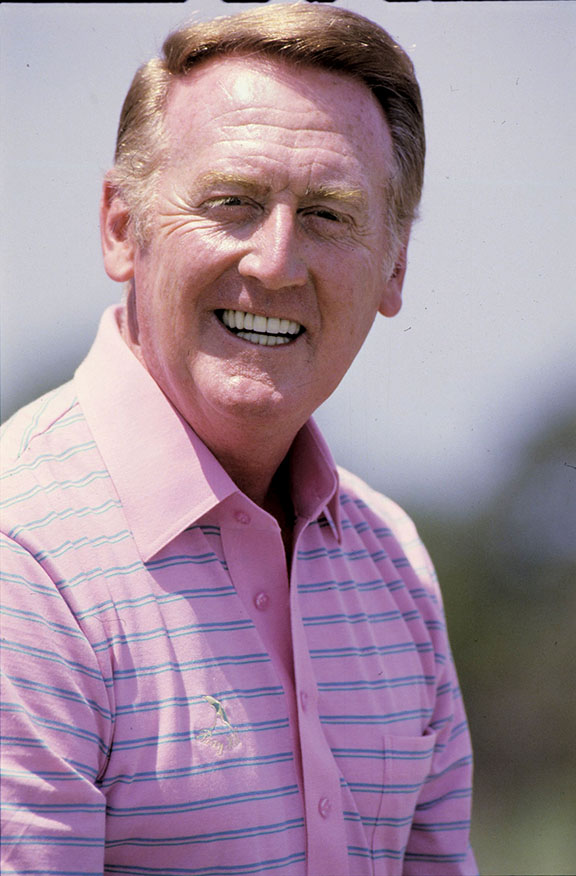
By Chris Rotolo
ATLANTIC HIGHLANDS – Earlier this month, as the dog days of summer ratcheted up the heat index toward triple digits, Atlantic Highlands resident Leonard Coleman was transported back to his childhood home in Montclair.
Coleman – the former Major League Baseball Commissioner of the National League from 1994 through 1999 – recalled weathering those sweltering heatwaves by dialing up Dodgers games on the television in his two-family home.
With the pop of a vacuum tube and the crackle of a tuning capacitor, Coleman probed for the proper channel, before the cool electric currents carried him to WOR-9, the local Dodgers broadcast station.
From the living room floor, Coleman was gripped by the revered baseball prose of Vin Scully, the iconic broadcaster who got his start in 1952 across the Hudson River in Brooklyn, before the franchise relocated in 1958 to Chavez Ravine, a small canyon in Los Angeles, California.
“We listened to Yankees games too, but the Dodgers are my team. And thinking about it, up until a couple of weeks ago, Vin Scully was part of every prominent baseball memory I have,” Coleman said during an Aug. 15 interview. “I can’t think of a time I’ve had baseball on my mind and Vin Scully wasn’t right there. Duke Snider, Roy Campanella, Jackie Robinson, Don Newcombe; players retire. But Scully was a constant.”
Like so many baseball enthusiasts, vivid recollections of the past came flooding back to Coleman after the Aug. 2 passing of the 94-year-old Scully.
“I was born in 1949 and he started his broadcasting career with the team three years later,” Coleman said. “The Dodgers had never won a world championship before 1955, which is when I was first starting to fall in love with the game and the team. There isn’t a time in my life that I don’t remember his voice being such an important part of baseball history, as well as cultural history.”
Six days after the 9/11 terror attacks in New York, Washington and Pennsylvania, Scully returned to his Los Angeles broadcast booth for a nationally televised ballgame between the Dodgers and San Diego Padres. As East Coast recovery efforts continued, a reassuring address to a captive audience of millions instilled strength during a time of vulnerability.
“…All of us indeed have lost a lot. We’ve lost thousands of lives. We have lost some of our self-confidence. We have lost some of our freedom. And certainly, we have lost a way of life. The President of the United States has said its time to go back to work. And so, despite a heavy heart, baseball gets up out of the dirt, brushes itself off, and will follow his command; hoping in some small way to inspire the nation to do the same…,” Scully said that day.
On April 8, 1974, Scully was in Atlanta to narrate a bout between the Braves and Dodgers, a game in which Hank Aaron would club a towering home run – the 715th of his career – beyond the left-centerfield fence to unseat Babe Ruth as Major League Baseball’s All-Time homerun leader.
“…What a marvelous moment for Atlanta and the state of Georgia. What a marvelous moment for the country and the world. A Black man is receiving a standing ovation in the Deep South for breaking the record of an all-time baseball idol. It is a great moment for all of us, and particularly Henry Aaron,” Scully said then, framing the moment in the context of the Civil Rights Movement and preserving historical magnitude at the crossroads of sport and culture.
Two decades earlier, back in Brooklyn, the opening salvo of Scully’s career overlapped with the final years of another Civil Rights hero in Jackie Robinson, who shattered Major League Baseball’s color barrier in April 1947.
Scully served as the voice of the Dodgers for the final four seasons of Robinson’s nine-year major league career and, over the course of his own 64-year media career, made it his unofficial duty to maintain the memory of this cultural icon.
“…Tonight, all across the country, in every major league ballpark, every player will be wearing number 42. And what does the 42 mean? It doesn’t mean that they’re all equal. Some are taller, heavier than others. Some are left-handed and others right. But the one thing they share in carrying number 42 is the fact that the man who wore it gave them the one thing no one else at the time could have done. He gave them equality and opportunity. Those were the things that many of those people never had…” Scully said April 15, 2020, during a Jackie Robinson Day ceremony at Dodger Stadium.
In 1997, Coleman saw his own campaign to honor Robinson come to fruition, when Major League Baseball announced it would retire the number 42 league-wide. Among other dignitaries on hand for the retirement ceremony at Shea Stadium in Queens was the 42nd President of the United States, Bill Clinton.
But Coleman recalls his interaction with Scully.
“He was an absolute gem of a man. The way he came across on his broadcasts was how he was in his everyday life, and I think that’s why we connected with him so deeply. He was generous in his words and in his spirit. And when we spoke, he was very direct. He looked you in the eye. And what you saw in his eyes was kindness,” Coleman said.
Vin Scully retired from broadcasting in 2016; up to that point he had been part of the Dodger organization’s first six World Series Championships. Four years later he was a guest of the organization to watch the club capture its seventh title in 2020.
The article originally appeared in the August 18 – 24, 2022 print edition of The Two River Times.














